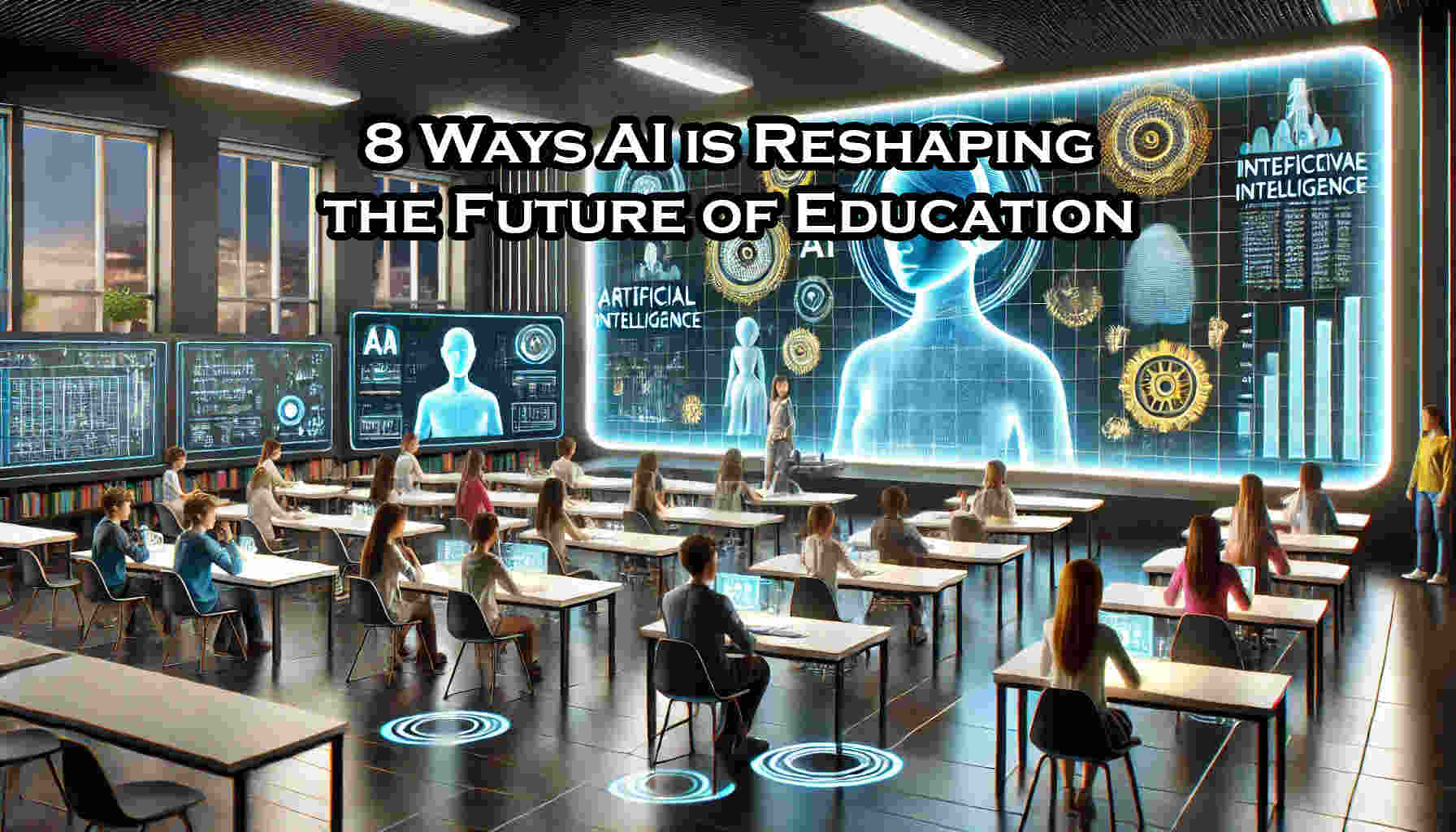💻 Artificial Intelligence (AI) is no longer just a buzzword – it’s changing the very way we teach and learn. Whether it’s automating boring administrative duties or providing hyper personalised learning journeys, AI is revolutionising classrooms globally. Curious how it’s all happening? Let’s dive into eight impactful ways AI is transforming education.
________________________________________1. 🎯 Adaptable Personalised Learning Just for You
Goodbye cookie-cutter lessons—AI adapts education to every student’s speed and taste. By investigating how learners engage with content AI platforms tailor individual learning experiences, altering content difficulty and suggesting relevant instances. The goal? To support every student to succeed on their own terms.
________________________________________2. 📊 Instant grading = Instant feedback
Grading mountain-sized piles of papers used to suck up all of a teacher’s time. With AI it’s instantaneous. From quizzes to essays, AI grading tools deliver accurate, coherent feedback promptly so that learners can identify where they went wrong and learn at their own pace – while teachers focus on teaching, not administrator tasks.
________________________________________3. 🧠 Always-On AI Tutors in Your Pocket
Imagine having to tutor by someone who never sleeps. AI Tutoring Solutions are now available 24/7 to empower students studying challenging subjects anytime anywhere. They lead learners through issues, illustrate then step by step torrent nl concepts, and direct without the cost of the traditional training.
________________________________________4. 🧾Smarter Content Crafting with AI
AI enables teachers to create richer, more captivating content—such as interactive e-books, simple quizzes and snackable video lessons. These tools keep learning engaging and interesting while also hinting on how to optimize your lesson plans, based on how kids are doing.
________________________________________5. 🤖 AI Chatbots: The Ultimate School Assistant
Need assistance with class schedule or enrollments? AI powered chatbots are there to answer it for you—24/7. They take care of the busy bits so your staff can do what’s important, run schools more efficiently and keep students better informed.
________________________________________6. 🌍 Learning Without Limits: Accessibility Through AI
AI is making education that’s not just for some, it’s for all. Ranging from real-time language translation to assist vision and hearing impaired students through speech-to-text and text-to-speech, AI removes the obstacles and creates a welcoming learning setting for each and everyone.
________________________________________7. 📉 Telling Which Struggles Are Coming Before They Get Here
AI doesn’t just react—it anticipates. Using student data, such as grades and attendance, AI can spot those in danger of slipping. That way, teachers at least get a heads up so they can get help early so not as many kids fall through the cracks.
________________________________________8. 🎮 Making Learning Fun with Gamification and Immersive Tech
Education is being turned into an adventure by AI. Gamified lessons and virtual or augmented reality can take students on a journey through anything from ancient civilizations to chemical reactions in a fun and interactive way. These experiences are not only more engaging but also more memorable for the students.
________________________________________Final Take: Future of Learning Is AI
AI is transforming the education space with quiet, but significant, power – from how classes arrive to at what point students receive support. It is not just about tech for tech’s sake – it’s about creating smarter, more personal and inclusive learning for all. As AI advances, tomorrow’s teacher- led classroom—its shape, its quality—will look-and- feel a world apart from today. And to be honest, that’s something to anticipate.
